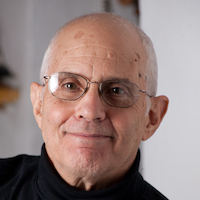
A few years ago, at a workshop I was leading, a woman named Amanda expressed a bad case of Thanksgiving ambivalence.
The custom in her large, extended family was for everyone to descend on Pittsburgh from wherever they lived. She went along with the tradition until, at age 36, she became a dedicated spiritual practitioner, going to yoga classes, meditating a couple of times a day, and cutting out intoxicants and meat—including turkey.
Three years earlier, Amanda had joined a sangha (spiritual community) that turned out to have a Thanksgiving tradition of its own: a retreat in the desert.
She had a stark choice: on one hand, four days of deep silence, giving thanks in a meaningful way with people who shared her values; on the other, an earsplitting, smoke-filled, booze-drenched orgy of food, football, and family baggage.
She loved her family; they were kind, decent people, but they would never understand that she’d rather meditate and take silent walks with nonkin who ate turkey-shaped tofu. So, for two straight years, Amanda obeyed the call of her spirit. She lied to her parents, one year making up a story about work, the next year inventing an illness. Now she once again faced the same decision.
Thanksgiving ambivalence is a fairly common condition among those whose highest values are not shared by their loved ones. But when you think about it, it’s really just a concentrated version of daily life if you’re on a spiritual path. The crass, noisy, toxic, materialistic madness around us can seem like a barricade on the road to enlightenment. The natural impulse is to avoid anything that might disturb your inner peace and diminish your joy.
The problem is, avoiding what seem to be obstacles can become its own obstacle, like swerving to avoid a pothole and crashing into a tree. In Amanda’s case, the retreats were sublime, but their value was diminished by her guilt; she could feel the hurt in her parents’ hearts from 2,000 miles away. She was starting to wonder if spiritual development might dictate a different decision.
I’ve seen this arise in many contexts, not just family holidays.
Avoidance is tempting, but it can deprive us of opportunities for growth. It’s like trying to go through college taking only fluff courses. It pays off in the short run, but there can be consequences. Life has a way of putting required courses on our schedule whether we like it or not, so we have to be prepared to tackle them and make the most of them.
The task is to make the inevitable irritants and disturbances part of the spiritual curriculum. Grace is like the wind: it enters through whatever window we open for it, and sometimes through cracks we didn’t know existed. But only if we’re receptive. Only if, when unwanted stuff arises, we’re prepared to ask, “How can I use this?” and “What is the lesson plan right now?” In fact, the asking itself can turn what seems to be a detour on the path into the path itself.
This is the beginning of karma yoga: making our actions an offering, and using whatever arises as a stepping-stone to self-realization.
In year three of her Thanksgiving ambivalence, Amanda made a different choice. She had actually signed up for the annual retreat, but when she voiced her dilemma at the workshop, another participant said, “I wish I had a family who wanted me that badly.”
That stopped her in her tracks.
In talking it through, she came to realize that whether she was with her clamorous family or in the hushed desert, what she takes away from the holiday will depend on what she brings to it. It’s all an inside job, after all.
So, she decided to turn Pittsburgh into a pilgrimage site. She vowed to see her relatives as teachers instead of looking down on them as spiritual pygmies. When her buttons were pushed, she would take it as a yogic homework assignment.
On the Friday after Thanksgiving, she later reported, her stomach ached from the crappy food, her head pounded from the noise, and her sinuses burned from cigarette smoke. But she felt deeply, surprisingly, thankful.
It’s not always easy to turn pain into joy, or annoyance into learning, or the ridiculous into the sublime.
Personally, when I’m confronted by what seem to be spiritual irritants, I find it helpful to remind myself of this story:
In an isolated ashram, when the monks gathered for meditation, a wild man from the nearby village would often barge in and shatter the silence with shouts and bells. Periodically, the monks would ask the Guru to do something about the problem. But years went by and nothing changed. When the Guru was on his deathbed, giving his final instructions, his successor asked, “What should I do about the crazy man who keeps disturbing us?”
The Guru replied, “Keep paying him.”
 Share on bsky
Share on bsky





Read 1 comment and reply